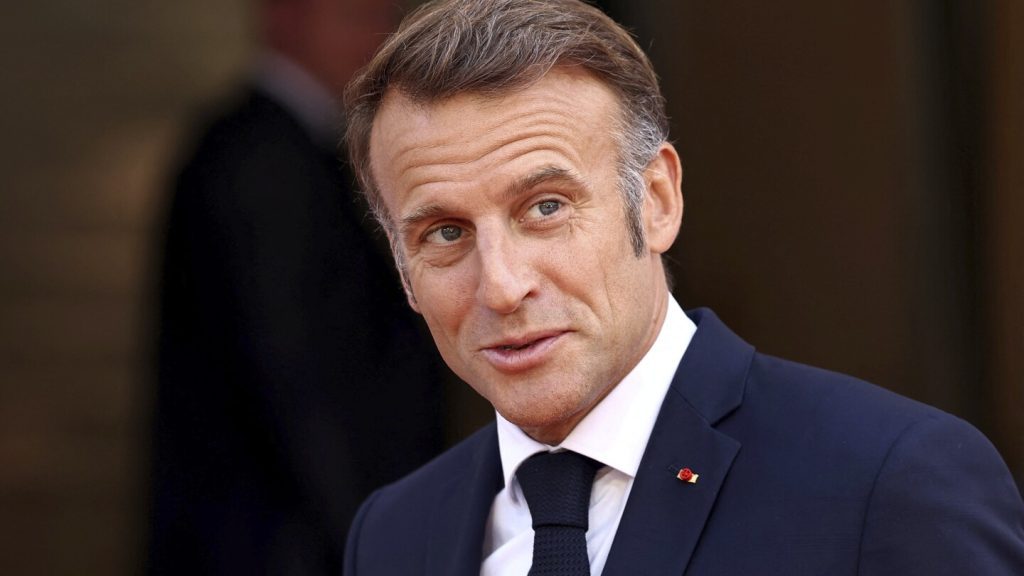Macron’s Recognition of Palestinian State Sparks International Responses
PARIS (AP) — French President Emmanuel Macron’s announcement to recognize a Palestinian state has led to similar actions from other Western countries, inciting anger from Israel and its U.S. ally as it places the two-state solution back at the forefront of diplomatic efforts to resolve the ongoing conflict in Gaza.
In a recent letter to Israeli Prime Minister Benjamin Netanyahu, Macron emphasized that “our commitment to the Palestinian people’s right to their own state is based on our belief that enduring peace is vital for Israel’s security.” He expressed that France’s diplomatic initiatives arise from a deep concern over the humanitarian catastrophe in Gaza, which he believes lacks any justification. As of Friday, Israel had designated Gaza’s largest city as a combat zone, with the Palestinian Health Ministry reporting over 63,000 deaths since the conflict began on October 7, 2023, following a Hamas-led offensive against Israel.
Countries like France, the U.K., Canada, Australia, and Malta have expressed intentions to formalize their support during the upcoming U.N. General Assembly set for September 23. Additionally, nations including New Zealand, Finland, and Portugal are considering similar initiatives.
Netanyahu opposes Palestinian statehood and intends to intensify military actions in Gaza. His accusations against Macron of “fueling” antisemitism over the Palestinian state call were met with Macron’s strong denouncement as “abject.”
In response, U.S. Ambassador to France Charles Kushner penned a letter claiming that recognizing a Palestinian state would encourage extremists, incite violence, and jeopardize Jewish safety in France. He was summoned by the French foreign ministry, represented by his deputy.
Geopolitical analyst Pascal Boniface, director of the Paris Institute for International and Strategic Relations, noted the reactions highlight the significance of symbols. He warned of a time-critical scenario where diplomatic paths toward a two-state solution must be balanced against the worsening situation in Gaza, complicating peace efforts.
International Calls for End to Gaza Offensive
Macron, along with other global leaders, has urged Israel to cease its military operations in Gaza, where the populace faces severe displacement and destruction, amid a declared famine in Gaza City. In his communication to Netanyahu, Macron warned that continued occupation and forced displacement of Palestinians would ultimately isolate Israel and exacerbate global antisemitism.
Although over 140 countries recognize a Palestinian state, largely symbolic, the moves exert additional diplomatic pressure on Israel. Muhammad Shehada, a political analyst from Gaza, argued that Western endorsements of a two-state solution challenge Netanyahu’s narrative and reveal alternatives to violence for Palestinians.
Support for Moderate Palestinian Leadership
French Foreign Minister Jean-Noël Barrot recently highlighted that diplomatic collaborations led by France and Saudi Arabia have resulted in unprecedented condemnation of Hamas by all members of the Arab League. Following a conference co-hosted by France and Saudi Arabia, Arab nations declared that “Hamas must relinquish its control over Gaza and cede its arms to the Palestinian Authority.”
This recognition of statehood may bolster moderate Palestinian factions by indicating the Palestinian Authority’s increasing influence in negotiations, encouraging a non-violent approach toward statehood. However, the PA remains unpopular among many Palestinians and faces criticism for its governance.



